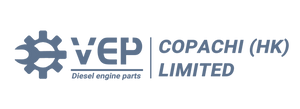This article mainly introduces how to judge whether the injector nozzle is dirty, and at the same time introduces how to clean the injector nozzle.
Fuel injection pump performance is closely tied to engine performance. If your vehicle features a fuel delivery issue, it'll literally starve to death. fuel injection system problems, therefore, are one of the foremost pressing engine issues to affect. Whether you’ve experienced fuel injector failure or not, it helps to know the fuel injector pump, how it relates to engine performance, and also how diesel fuel injection pumps differ from traditional gasoline-powered units.
Diesel Fuel Injection Pumps – Quick Overview
So what does a diesel oil injection pump do? It’s about as simple as you'll get: fuel injectors supply fuel to the engine’s combustion chamber. High-performance automobiles usually have one fuel injector per cylinder, and therefore the pump “injects” fuel into the combustion chamber – hence the name “fuel injector.”
The fuel is dispersed from the injection pump to the combustion chamber via a reasonably simple process. Pressurized fuel enters the fuel injector. Supported a sign from an electrically controlled solenoid valve – the solenoid valve acts as a kind of on / off valve – the fuel enters a plunger, which prepares the fuel for the ultimate exit. When the fuel leaves the fuel injector, a sprig tip distributes the fuel as a fine mist.
The pressure-Packed fuel injection system
Today’s diesel oil injection pumps are struggling – even more pressure than what was once considered “normal.” Around 15-20 years ago, it had been common for fuel injector pumps to process fuel during a system at around 10,000 to 15,000 psi (pounds per square inch). But that’s only about half what engines are expected to try to today. Fast-forward to this day, and people diesel oil injector pumps are operating within the 30,000 to 40,000 psi range.
Top-end engine performance is in some ways dictated by what proportion fuel is often processed by the engine. Basically, a superior engine can process fuel and air better than a mean engine – that’s one reason why turbochargers are so effective at increasing horsepower – and a greater internal pressure during necessity. That helps explain the many pressure output of today’s fuel injection system pumps compared to those from yesteryear.
A Pair of Reasons that specify Fuel Injector Pump Failure
99% of diesel oil injector failure is often traced to 2 different issues:
• Faulty mechanical problems within the physical fuel injector housing
• Fuel quality (or rather, lack of quality)
From these two things, a number of problems can surface. Let’s take a glance at 4 common fuel injector pump complications.
Problem #1 – Dirty Fuel
A clean diesel fuel pump injector may be a happy diesel fuel pump injector. Over time, the residue can build up within the equipment, and enough gunk, grime, and grease can clog the whole fuel injector pump. The spray tip (where the fuel leaves the injector and enters the combustion chamber) is especially susceptible to“backing up,” so to talk.
If your engine has ever sputtered or hesitated during acceleration, a clogged fuel spray tip could be the glitch. And it all starts with subpar diesel fuel. In 2006, diesel oil production was tweaked to catch up on ultra-low sulfur diesel fuel (ULSD), and diesel owners have noticed more “dirty fuel” difficulties than before.
Problem #2 –Low Fuel Tank Level
If your main goal in life was to destroy diesel oil pump injectors, you’d run your car with the fuel tank as on the brink of empty as possible. It all has got to do with lubrication. With many diesel fuels within the tank, the fuel pump bearings receive much lubrication. With a near-empty tank, the equipment is suddenly pushing air rather than diesel fuel. Anything but diesel oil can wear out the fuel pump bearings, which suggests the fuel injectors won't receive the fuel at the pressurized level (30,000 psi, 40,000 psi, etc.) it should be.
Problem #3 – Foreign Object Inside Injector
Diesel fuel pump injectors are high-precision components. They also affect an incredible amount of motion and other stresses. One small visitor inside (a piece of dust, debris, etc.) can clog the injector. Worse yet, a microscopic object can leave the injector open all the time. If the injector can’t close, cylinder performance is compromised.
Problem #4 – Bad Injector Timing
Whenever the fuel injector pump’s O-rings or ball seats are defective, the timing of the fuel transfer process is disrupted. This is often a standard diesel fuel injector pump glitch, and typically requires an entire injection pump rebuild or replacement.
Maintenance Reminder
Here’s the great news about fuel injector pump problems: avoiding disaster is straightforward. In fact, if you are doing these three things, you’ll enjoy great performance and minimal repair costs:
· Purchase clean, reliable fuel
· Change your filter every 40,000 miles
· Keep your fuel tank a minimum of one-quarter full most of the time
If you’re conscious of diesel oil injection pump problems together with your automobile or have any questions on fuel pump replacement components, VepDiesel.com has the answers you’re trying to find – and therefore the products, too.



